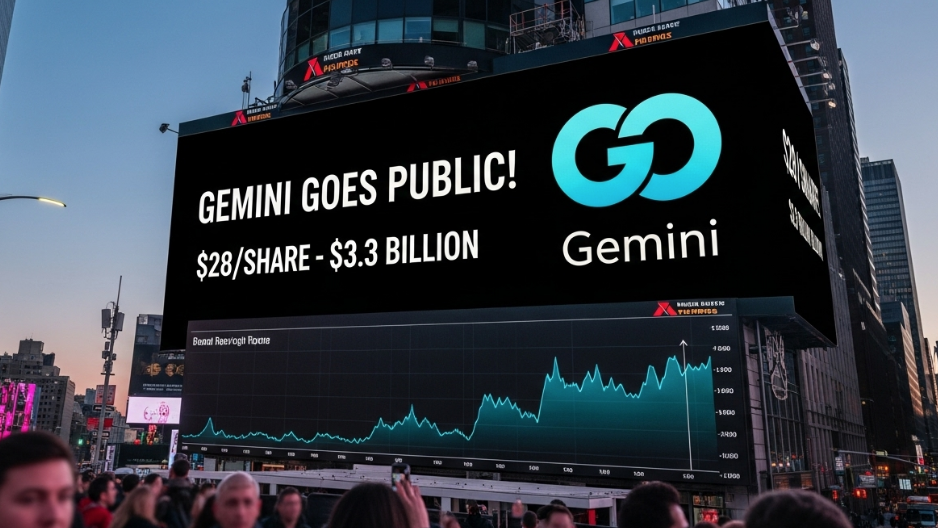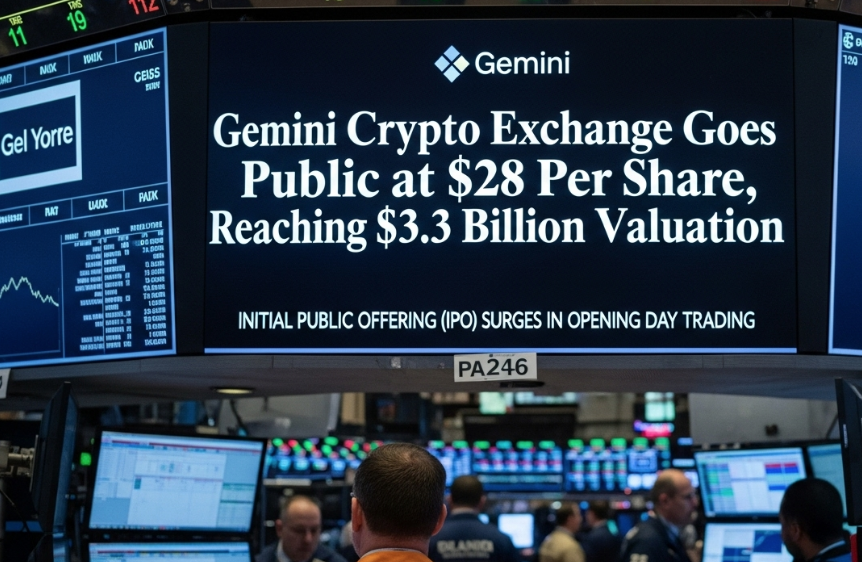- September 13, 2025
- Posted by: admin
- Category: Crypto Treasury, IPO, Stablecoin

September 11, 2025
So remember those Harvard twins who claimed Mark Zuckerberg basically lifted their Facebook idea? Well, Cameron and Tyler Winklevoss just had the last laugh, taking their cryptocurrency exchange Gemini public at $28 per share and landing a cool $3.3 billion valuation.
From Facebook Drama to Crypto Kings
If you followed the early Facebook saga, you’ll recall the Winklevoss brothers made headlines as the Harvard classmates who sued Zuckerberg over what they said was their stolen social network concept. After reportedly walking away with around $65 million from that legal settlement, the twins didn’t exactly fade into obscurity. Instead, they dove headfirst into cryptocurrency, founding Gemini back in 2014 when most people still thought Bitcoin was some kind of internet magic trick.
The IPO That Actually Worked

Gemini’s public debut Thursday evening turned out better than expected, with shares pricing above the anticipated $24 to $26 range. The demand was so strong that the company actually had to reduce the number of shares sold from 16.67 million to 15.2 million just to stay within their $425 million offering cap. Talk about a good problem to have. This pricing also represented a serious glow-up from their initial proposed range of $17 to $19 per share earlier in the week.
The big Wall Street names handled the underwriting, with Goldman Sachs, Citigroup, and Morgan Stanley leading the charge. You’ll be able to find Gemini trading on Nasdaq under the ticker “GEMI,” and if you’re not an institutional investor, don’t worry. They’re reserving up to 30% of shares for regular folks through platforms like Robinhood, SoFi, and Webull.
What Gemini Actually Does
Here’s where things get interesting. Gemini isn’t just another crypto trading app trying to get you to buy Dogecoin at 3 AM. The platform positions itself as the grown-up in the room, operating as a regulated cryptocurrency exchange that serves both big institutional clients and everyday traders. They’re holding over $21 billion in assets as of July, which is nothing to sneeze at.
The company’s main selling point revolves around being the responsible choice in a Wild West industry. They operate as a New York Trust company, which means they deal with more regulatory oversight than your average crypto startup. For institutional investors who want to dabble in digital assets without feeling like they’re gambling at a sketchy casino, Gemini offers custody and trading services with a suit-and-tie approach.
But they haven’t forgotten about regular consumers either. The platform offers crypto-backed credit cards and maintains user-friendly trading interfaces that won’t make your head spin. Their recent partnership with Ripple for a new credit card generated over 30,000 sign-ups in August alone, more than doubling their previous monthly record.
The Reality Check
Now, before you start thinking this is all champagne and moon rockets, let’s talk numbers. Gemini posted a $159 million net loss in 2024, and things actually got worse in the first half of 2025 with losses ballooning to $283 million. So while the user growth looks impressive, turning that into actual profit remains the million-dollar question, or in this case, the multi-million-dollar challenge.
The timing is also worth noting. The crypto IPO party has been going strong with companies like Circle Internet and Bullish having successful debuts, but there’s been some cooling off in major cryptocurrencies like Bitcoin and Ethereum lately. Whether Gemini can keep the momentum going remains to be seen.
The Institutional Vote of Confidence
One bright spot came this week when Nasdaq decided to put its money where its mouth is, making a $50 million strategic investment in Gemini. This isn’t just about the cash though. Nasdaq wants to offer its clients access to Gemini’s custody services and use the exchange as a distribution partner for its trade management system. When the people who run the stock market decide to partner with your crypto company, that’s probably a good sign.
The Winklevoss brothers have certainly come a long way from their Facebook courtroom drama. Whether their bet on becoming the institutional face of cryptocurrency pays off long-term will depend on their ability to turn all that user growth and regulatory credibility into actual profits. But for now, they’re sitting pretty with a multi-billion-dollar public company, which isn’t bad for a couple of guys who started out rowing crew at Harvard.